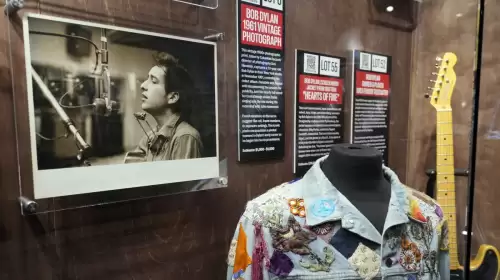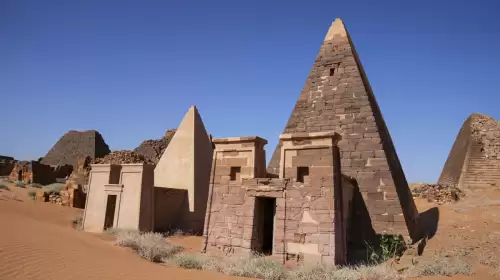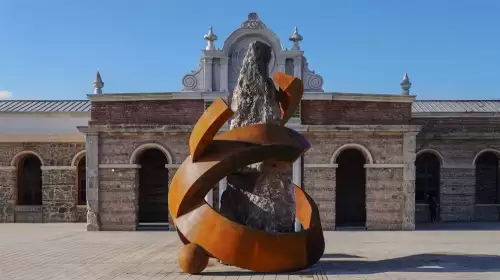Over 40 historical buildings in Istanbul, which once served as the capital of the Ottoman Empire, continue to play a significant role in education as state schools under the Ministry of National Education.
While there are 3,963 state schools across the megacity offering education at the preschool, primary, middle school and high school levels, more than 40 of them are located in buildings over 100 years old, still serving as educational institutions.
These historical buildings, which underwent transformations following the declaration of the republic, continue to host students in the 2024-2025 academic year, carrying the traces of past eras.
Students receive education in classrooms, run through corridors and play in gardens that carry the centuries-old historical atmosphere.
These buildings, constructed for different institutions and individuals such as military barracks, madrassas, mansions, tekkes and kitchens, bear the signatures of famous architects and craftspeople of their time.
Some still boast their original architecture through restorations, while others have added new buildings over time due to maintenance, repairs and capacity expansions.
According to the Provincial Directorate of National Education’s archives, schools in buildings older than 100 years are found in various areas across the megacity, especially in Fatih, Beyoğlu and Üsküdar.
Fatih Several schools are housed in historic buildings in the Fatih district.
The Mekteb-i Sıbyan, founded by Sultan Bayezid II's vizier in 1485, is now Davutpaşa Anadolu High School.
Cağaloğlu Anadolu High School, the "first civilian high school" of the Ottoman Empire, founded in 1850, is also situated in a historical building.
Fatih Imamhatip Middle School, known as "Taş Mektep," was built as a Military Rüştiye School in 1869.
Fethiye Imam Hatip Middle School, founded in 1573 by Ismihan Sultan, was originally a madrassa.
Other notable schools include Silivrikapı Kindergarten, restored in 1884 and once Bala Dergah; Muallim Yahya Primary School, established in 1914-1915; and the Şeyhülislam Hayri Efendi Primary School, which was destroyed in the 1908 Çırçır fire but was later repaired.
Beyoğlu Beyoğlu also features many historic school buildings.
For example, the building housing Beyoğlu Anadolu Lisesi was constructed in 1901 and is a prime example of Pera architecture.
Cezayirli Gazi Hasan Paşa Primary School is located in a building believed to date back to the 18th century and continues to serve as an educational institution.
Galatasaray High School, completed in 1908, occupies land that has been an educational site since 1481, having hosted institutions such as the Galata Palace Enderun School and Mekteb-i Sultani.
Katip Mustafa Çelebi Vocational and Technical Anadolu High School was originally built in the 1870s as a mansion for Necip Melheme, a forestry minister, and later became a tobacco warehouse and office building before transforming into a school in 1932. Üsküdar In Üsküdar, several schools are situated in historic buildings.
For instance, the Sokullu Mehmet Paşa Primary School, built by Sultan Abdülaziz in 1861 as a Military Rüşdiye School, became a primary school in 1926.
Similarly, Çengelköy Primary School, built in 1897 on land donated by the palace, was initially Beylerbeyi Boys’ Sample School in 1901 before becoming a school in 1926.
Many other schools throughout Istanbul are housed in historical buildings.
For example, the former Darüşşafaka High School, built in 1873, became the International Fatih Sultan Mehmet Anadolu Imam Hatip High School after renovations.
Cağaloğlu Hüsamettin Yivlik Traditional Turkish Arts Vocational and Technical Anadolu High School, established in 1874 as a language school for Bab-ı Ali clerks, is still operational today. Çapa Science High School, founded in 1900, retains distinctive architectural features from its era.
Kocamustafapaşa Primary School, built in 1880 after the original Develi Han was demolished, is still in use after 145 years.
Fatih Gelenbevi Anadolu High School, founded in 1911, served as a hospital during World War I before becoming an educational institution in 1924.
Yunus Emre Middle School, built in 1895 for Eastern Railway Company employees, became a school in 1934 after being purchased by the Ministry of Education.
Vefa High School, established in 1872, moved to its current location in 1894 and has a long history in civil service education.
Other areas of Istanbul In the Kadıköy district, Kemal Atatürk Anatolian High School was originally the Sainte Euphemie Girls' College, built by the French in 1905.
In the Beykoz district, a former hunting lodge from 1846 now houses Çavuşbaşı Ahmet Akça Primary School.
The 1910-built school in Eyüpsultan, designed by architect Kemaleddin Bey under Sultan Mehmed V Reşad’s order, now hosts Reşadiye Imam Hatip Middle School.
In Tuzla, the Aydınlı Kindergarten, founded in 1913, continues to educate after more than a century.
The Selimpaşa Primary School in Silivri, built in the late 19th century as a convent and nursing school, has been an educational institution since the republic’s declaration.
Other schools, such as the Tolga Eti Primary School in Arnavutköy and Ali Ülker Primary School in Bayrampaşa, also occupy historic buildings with rich histories.
These historical school buildings, while continuing to serve as educational institutions, reflect the cultural and architectural legacy of Istanbul.
The designs of these buildings represent the styles of their time, with many featuring intricate details from renowned architects and craftsmen.
The schools are not just places of learning; they are also living monuments to the city’s rich history.
Many of these buildings have undergone renovations to preserve their original structures while adapting them for modern use.
Despite the changes over the years, they remain symbols of Istanbul's past, providing students with a unique educational experience that combines the historical and the contemporary.





